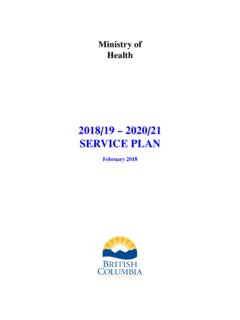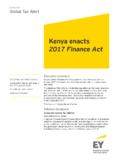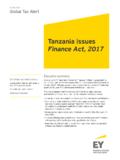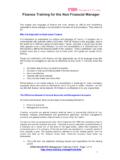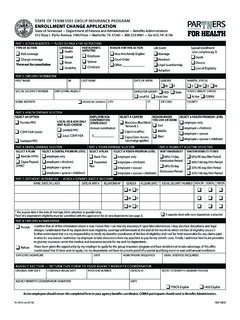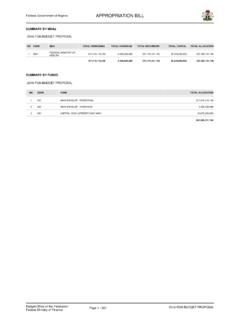Transcription of Backgrounder - Eliminating Medical Service Plan …
1 February 20, 2018. Backgrounder . Eliminating Medical Service PLAN PREMIUMS. Budget 2018 will eliminate Medical Service Plan (MSP) premiums effective Jan. 1, 2020. By Eliminating these unfair and regressive fees, the government will help lift a significant financial burden off of individuals and families. In total, Eliminating MSP premiums will save individuals up to $900 per year and will save families up to $1,800 per year. MSP premiums disproportionally impact low and middle income earners. Currently, all households with adjusted net income of more than $42,000 per year pay the same amount.
2 This means a person earning $45,000 per year pays the same premiums as someone earning $250,000 per year. Eliminating this regressive fee for all British Columbians will result in a fairer tax system that works for everyone. British Columbia is the only province in Canada that levies MSP premiums. They are complex and expensive for businesses to administer. They also lead to substantial administrative costs for government. The government committed to Eliminating MSP premiums within four years. The government took the first step in Budget 2017 Update by cutting MSP premiums by 50%, starting Jan.
3 1, 2018. and increasing the threshold for premium assistance by $2,000. The decision to eliminate MSP premiums was informed by the MSP Task Force's interim report, including the decision to eliminate premiums all at once, as opposed to phasing them out over time, and to provide advanced notice of the changes. In order to continue to deliver the services British Columbians depend on, the Province is replacing the revenues from MSP premiums with an employer health tax. This new payroll tax will come into effect Jan. 1, 2019 with the following rate structure: Businesses with a payroll of more than $ million will pay a rate of on their total payroll.
4 Businesses with a payroll between $500,000 and $ million will pay a reduced tax rate. Businesses with a payroll under $500,000 will not pay the tax. By exempting businesses with payrolls under $500,000, the employer health tax is designed to help protect small businesses. At , it is also the lowest rate among provinces with a payroll tax in Canada. Further details about the employer health tax will be provided prior to its implementation on Jan. 1, 2019. The Province estimates the new tax will raise approximately $463 million in 2018-19.
5 The government will use this revenue to help people by investing in services and the economy. Quick Facts: In 2016-17 MSP premiums provided a total of $ billion in revenue. The new employer health tax is estimated to provide $ billion in revenue per year in 2019 20 and 2020-21. Contact: Sonja Zoeller Ministry of Finance 250 387-1248.
